Bible
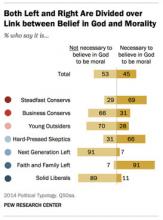
Toss out the party and ideology labels: Republican, Democrat, conservative, liberal.
The Pew Research Center’s new survey, “ Beyond Red VS Blue: The Political Typology,” finds no sharp lines dividing people by their views on politics, faith, family, and the role and limits of government.
“It’s a spectrum,” said Michael Dimock, vice president for research for Pew Research Center.
Looking at questions relating to faith and family, he observed, “the caricature that all religious people are Republican is just not true.”


MOST discussions about the Bible and homosexuality are limited to a handful of passages and the subject is viewed as a moral issue in which the burden of proof is placed on lesbians and gay men to defend our right to be who we are in light of those passages. If we approach scripture understanding that heterosexism, like sexism and racism, is a justice issue, then we move to a different plane of inquiry.
We might then understand that what is at stake in questions of sexual morality is not sexual orientation per se but rather the rightful or wrongful use of sexuality whatever our orientation. Sexual sins can occur in both heterosexual and homosexual relationships wherever people are exploited, abused, neglected, or treated as objects. On the other hand, love, commitment, tenderness, nurture, respect, and communication can be expressed in both homosexual and heterosexual relationships.
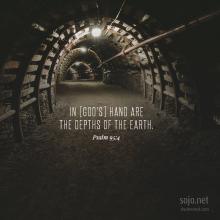
Two weeks ago in Soma, Turkey, a coal mine explosion left 301 people dead. It was the country’s worst mining disaster, but it wasn’t the first — and it wasn’t the last, as multiple fatal accidents have happened in the two weeks since. The last time a mining disaster caught the world’s attention, we watched and waited and prayed during the rescue operation for the miners in Chile.
In Turkey, people protested in the streets of Soma — protested against Soma Mining for letting this happen, against their government for loopholes in safety rules. In response, the police issued a ban on protests and locked the city down. The ruling political party proudly announces that it has inspected that mine 11 times in the past 5 years; Soma Mining denies negligence. And the families of 301 persons mourn their losses.
This isn’t a faraway problem. In the United States, we don’t do as much traditional mining as we used to — instead, we do mountaintop removal. This has a human cost, too, in more insidious ways. The people living in Appalachia have higher rates of respiratory illness, cancer, kidney diseases, skin ailments, and more. And the landscape, which has the fingerprints of God in it, is being blown apart.
Psalm 95:4-5 says:
“In [God’s] hand are the depths of the earth; the heights of the mountains are [God’s] also. The sea is [God’s], for [God] made it, and the dry land, which [God’s] hands have formed.”
Matthew Vines sits down with Sojourners to discuss his first book, "God and the Gay Christian: The Biblical Case in Support of Same-Sex Relationships."
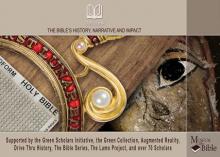
On April 14, the school board in Mustang, Okla., voted to institute an elective Bible course. This is not news. More than a thousand U.S. public schools offer Bible as literature courses.
In March, Hobby Lobby argued before the Supreme Court for a religious liberty exemption to the Affordable Care Act. Now Green is promoting the Bible curriculum the Mustang school board just adopted — a curriculum he predicts will soon be adopted in hundreds, perhaps thousands, of American public schools.
OURS IS A CHRISTIAN FAMILY STORY. It is also a loving, loyal, confused church story. There’s nothing all that unusual about it, really. But precisely because similar stories are unfolding in countless families and churches today, I want to share it.
I want you to see how sexual orientation and deeply held beliefs are at odds in ways that injure those we love. This debate is not simply about beliefs and rights; it’s about people who are created in God’s image. Those people may be like you or entirely unlike you. They may be your roommate or neighbor, your best friend or a colleague. They may be your son or daughter.
My dad would later tell me the day I came out to him was the worst day of his life. His sister had passed away the year before; his father years earlier. But the day I said “Dad, I’m gay” was the worst day of his life. To his credit, though, he didn’t tell me that at the time. He hugged me and listened as I nervously stumbled over my words for an hour and a half. Then he told me he loved me.
My mom, too, responded with open arms, but the news was hard for her to hear. She could barely eat for several days afterward, and she spent much of the next year deeply dispirited. Still, I was grateful for my parents’ unfailing compassion and love.
What that love would ultimately look like, though, was unclear.

The Bible encourages the “repression of women,” and it’s silent on such fraught topics as war or slavery.
The American Bible Society’s annual “State of the Bible” survey reveals “the people of the book are not people of this book,” said Geof Morin, chief communication officer for the society.
“We know 88 percent of people say they have a Bible. They think: ‘I have a Bible. I have had one for a long time. I must know what’s in it.’ But people overestimate their knowledge,” Morin said.

Feeling anxious about your tax liability as April 15 nears? The Bible has many references to taxes that will sound strangely relevant at this time of year — beginning with the story of David and Goliath.
Many remember a teenage boy offended by insults thrown by a giant foe against his nation and God himself, who volunteers to go into battle with a slingshot. But did you know that a tax incentive was part of his prize?
Visiting the battlefield, David learns: “The king will give great wealth to the man who kills (Goliath) and will exempt his family from taxes in Israel,” (1 Samuel 17:25).
Throughout Scripture, tax discussions mark many passages, as ancient men and women worried about how they would pay.

"It's about God, stupid." I can still hear Dean Richard Hays addressing Duke Divinity School at its convocation two years ago, reminding a room full of ambitious, intelligent, and talented theologians to keep their priorities in line. "You will all be writing papers, reading books, studying for exams. Some of you will be worrying about getting published and applying for Ph. D programs. But just stop. Just remember: It's about God, stupid."
Meanwhile, I sat there in awe at this powerful message, but also amused at how he just called three hundred graduated students at Duke "stupid."
Yet Dean Hays was right on target. We needed to hear it.

IS IT WRONG for a Christian to pray to Allah? When a Muslim worships Allah, is she worshiping God?
Questions like these have arisen with more urgency than usual in the months since a Malaysian lower court ruled in October that the word “Allah” was exclusive to Muslims and therefore the Herald, a Malay Catholic newspaper, could not use the word “Allah” in print. (The decision is currently under appeal.)
Many Christians lament the lower court’s decision. They see it as an infringement on the rights of religious minorities. But other Christians welcome the ruling. They claim that it actually helps Malaysian Christians by protecting them from confusion and preventing them from making a grave mistake.
For example, Albert Mohler, president of Southern Baptist Theological Seminary here in the U.S., has argued that Christians should not call upon the God of the Bible using the word “Allah,” because “Allah” refers only to the god of the Quran, a god who is radically different from the true God of Jesus Christ.
Whether Mohler and those who agree with him are right carries dramatic implications. If they are, then prospects for respectful, trusting cooperation between Christians and Muslims are slim. There is one and only one God. If Christians believe that Muslims do not worship that God, then we must believe that Muslims worship nothing, an empty, created idol, or else something demonic. The claim to worship the one and only God is one of the most central claims of Islam. No matter how respectfully a Christian denied that claim, it would be difficult for most Muslims to receive that rejection. Mutual respect is an important ingredient in public cooperation. Thus cooperation between Christians and Muslims would be impeded. Even more disconcertingly, if the bulk of Christians held, as some do now, that Muslims actually worship a demonic force, then those Christians would have compelling reasons not to cooperate with Muslims. To do so would be to cooperate in opposition to God.

The Noah epic releasing in theaters this Friday promises to be controversial, with director Darren Aronofsky calling it “the least biblical biblical film ever made.” As the story of Noah remains near and dear to people of many faith traditions, the film has already unleashed a flood of criticism.
In an interview, Aronofsky described where he got the idea for the film, how he plans to respond to critics, and why he focuses the film on themes of justice vs. mercy.

With the release of the movie Noah a couple of weeks away, the waters of controversy are already rising fast. I’ve seen the movie’s final cut, and director Darren Aronofsky’s re-envisioning of the biblical hero Noah will not disappoint — inciting some and enthralling others. Some will undoubtedly chastise him for the ways in which the movie riffs on the biblical account of Noah. Others will praise Aronofsky for his creative vision.
But the big question generated by a film like Noah is: When the Bible is the source of inspiration for art, how close does the artist have to stay to the original narrative? The Bible has been the inspiration for profound works of art for centuries. It isn’t surprising. The Bible is full of passion, romance, intrigue, struggle, and the triumph of good over evil.
Even so, it is hard to ignore the reality that not all art inspired by the Bible is respectful of its subject matter. Where, then, should the line be drawn between artistic interpretation and blatant disrespect?
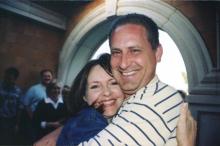
Once Steve Green sets his path, there’s no turning back.
Not when he saw no point in college, going directly into his family’s Hobby Lobby craft store business. Green, now 50, rose up from assembling picture frames for “bubble gum money” at age 7 through every job, including cleaning toilets, to president of the $3.3 billion national chain, one of the nation’s largest private companies.
And certainly not now when, he says, the U.S. government is challenging his unshakeable Christian faith and his religious liberty.
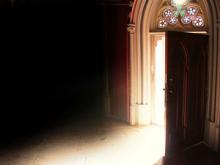
Recently, a large wealthy church decided to break up with my denomination. I’m not 100 percent sure I know why. But the no-regrets explanation they wrote implied that religious differences between us were too severe for them to stay committed to our relationship.
Religion has a way of making people do extraordinary things to create peace and unity. It also, as we know well, has a destructive capacity to turn people against one another. It can make us grip our convictions so tightly that we choke out their life. We chase others away, then say “Good riddance” to soothe the pain of the separation. Even more alarming, too many religious people insist on isolating themselves and limiting their imagination about where and how God can be known.
All these realities take on a sad irony when we read about God promising to be outside the walls, present with different people in different places. What does it look like when God defies the restrictions we presume are in place?

Are Black people mentioned in the Bible? Absolutely. The Bible is a multicultural book. This statement may sound controversial but archeology, history, and the text prove it to be true. It may be difficult to see the black presence in the Bible because you won’t read the terms black or African but you will read the terms Ethiopians, Cushites, Egyptians, and other tribal terms. The Roman Catacombs show biblical scenes painted by first- and second-century persecuted Christians, and their paintings clearly show people of color. What would Roman Christians gain from painting these characters black? What did these early Christians know and accept that seems unbelievable today? It appears that our faith has been distorted. One of the effects of racism is the whitewashing of history and sadly this has taken place even in our biblical studies.

Christian men - males who are caught up in the ancient, raw, and radical Jesus movement, this is to you:
It's high time we say something, do something - good Christian men, stand up. Women are being raped and sexually abused across the world, and we continue to theologically shrug our shoulders. It's just the way it is, we say.
Whether we want to admit it or not, we turn a blind eye to the ways in which our holy scriptures have sanctioned this throughout history.

“Be perfect, therefore, as your heavenly Father is perfect” (Matthew 5:48). Seriously, Jesus? Have you even met some of us? Have you seen the depths of our jealousies, the breadth of our greed? Have you noticed how insatiable our egos are? How deeply insecure we all are?
Perfect?
You cannot mean what you seem to mean.
What then do we do with this seemingly impossible call? For many of us, this is one of those passages in the Bible we seek to explain away. Jesus can’t possibly mean what he says here. We reckon that he must be calling us merely to aspire to perfection. Or we conclude that in calling us to perfection, we realize how very far we are from it and thus lean on God’s grace. But certainly, absolutely, without a doubt, Jesus cannot be calling us to be perfect like God is perfect.
Right?

Maybe it’s fitting that I was scrolling through my Twitter feed when I came across this very clickable headline from the AP: “Go Figure: Facebook Read Daily More Than Bible.”
Ouch. That one hits pretty close to home. That aimless scrolling through my Twitter feed could just as easily have been time well spent in front of the Good Book. Has my daily devotion to social media really eclipsed my daily devotion to spiritual practice?
After 10 years of operation, Facebook has usage stats that put it in the stratosphere of dedicated readers. Just over half of adults in the U.S. and Canada use Facebook daily. The same cannot be said for the Bible or other religious texts. Really, it’s not even close.
The AP story notes that Facebook “says worldwide it has 757 million daily active users. Of those, 19 percent are in the U.S. and Canada, so that's more than 143 million people checking Facebook daily.”
Compare that to these numbers from the same article about those who read a religious text every day: “A 2006 CBS News poll found 15 percent of U.S. adults read the Bible or other religious texts daily. There are about 267 million adults in the U.S. and Canada. That means about 40 million people reading the Bible daily.”
In a country where 79 percent of adults claim some sort of religious affiliation, less than a quarter of that number statistically reads their religious text daily. Historically the term “People of the Book” has referred to the Jewish people and their reverence for the Torah, their holy law. Perhaps those of us in the U.S. should call ourselves “the people of Facebook.”
Bad religious puns aside, personally, I’ve never been one to read my Bible with much consistency, and certainly not on a daily basis. While I’ve tried my fair share of daily Bible reading programs, plans, and even Bible apps, I’ve yet to develop the habit of daily reading.

This has been a hard winter — from Minnesota to Alabama. It’s been a very hard winter for Tanya and Red and Jamie and Andre and Adrian and Mercy. They are my neighbors here in New York City. It’s not that the heat was shut off in their apartments because they didn’t pay their bills. They have no apartments. Since last fall, they have made their beds on the steps of Riverside Church, under the scaffolding at Union Seminary and on the benches near Grant’s Tomb.
“Will you be warm enough tonight?” I asked Tanya. “Oh, we’ll be plenty warm,” she said as she showed me their outdoor bedroom: the first layer was carpeting, then stacks of blankets for padding and many more blankets for covers. “Once you’re in here,” said Red, “it’s too hot to keep your jacket on.” I was grateful to hear that because, well, then I wouldn’t feel so terrible going inside my warm apartment.